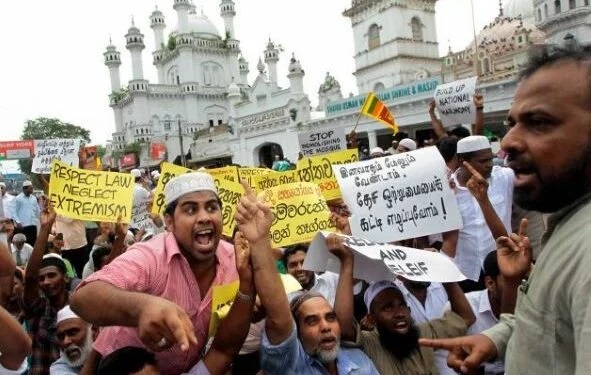Sri Lanka’s stance on Palestine in the face of Israel’s offensive push with human rights violations has helped the island nation to regain its reputation among the countries in the Organisation of Islamic Cooperation (OIC) after strong criticism over forced cremation of Muslim Covid victims, Foreign Minister Ali Sabry said.
The government of former president Gotabaya Rajapaksa led by current ruling party Sri Lanka Podujana Peremuna (SLPP) forced Muslims and Christians to cremate the dead bodies of those who died of Covid-19 in 2020.
The OIC raised the forced cremations issue at the 46th United Nations Human Rights Council (UNHRC) in February 2021 after the SLPP government rejected repeated requests by local and global Islamic bodies.
The policy was later reversed, but the move hit diplomatic ties with Middle Eastern and OIC nations which is the highest source of employment for Sri Lankan expatriates.
Rajapaksa’s arrogant policy, which he later blamed on experts, led the OIC and Middle East nations to reject Sri Lanka’s repeated requests for credit lines to buy oil and loans before the country collapsed after an unprecedented economic crisis in 2022.
“I think that was a major setback in that point in time with our relationship with the OIC and Middle East, but that’s why we worked overtime to reach out to the OIC and build relationships with them,” Foreign Minister Sabry told reporters at a media briefing on Wednesday (08).
“Wherever we met, we explained the circumstances on which this happened. They do understand that, and their only hope is we not to repeat that kind of discriminatory treatment in the future.”
“But they are happy with the stand Sri Lanka has taken particularly on the Palestinian issue,” Sabry said.
“We have been very very vociferous both in Sri Lanka and outside in all forums in multilateral or otherwise. Basically, when I met with the OIC, when I met Palestinian foreign minister and then generally the Muslim world and the Middle East, they are very very happy with the stance Sri Lanka has taken.”
“So, I can say that the Sri Lankan relationship with the Muslim countries and the Middle East is almost and all-time high.”
Minister Ali Sabry faced harsh criticism from human rights defenders and from members of the Muslim community for what they claimed was his silence in the face of the inhumane, unscientific decision by the Rajapaksa government.
The Rajapaksa government’s stubborn insistence on cremating Muslim and Christian victims of the Covid-19 virus was against the communities’ religious believes and drew widespread condemnation and concern of Muslim countries and leaders.
Rajapaksa, after the economic crisis hit the country, was forced to flee in the face of massive protests against him in July 2022.


